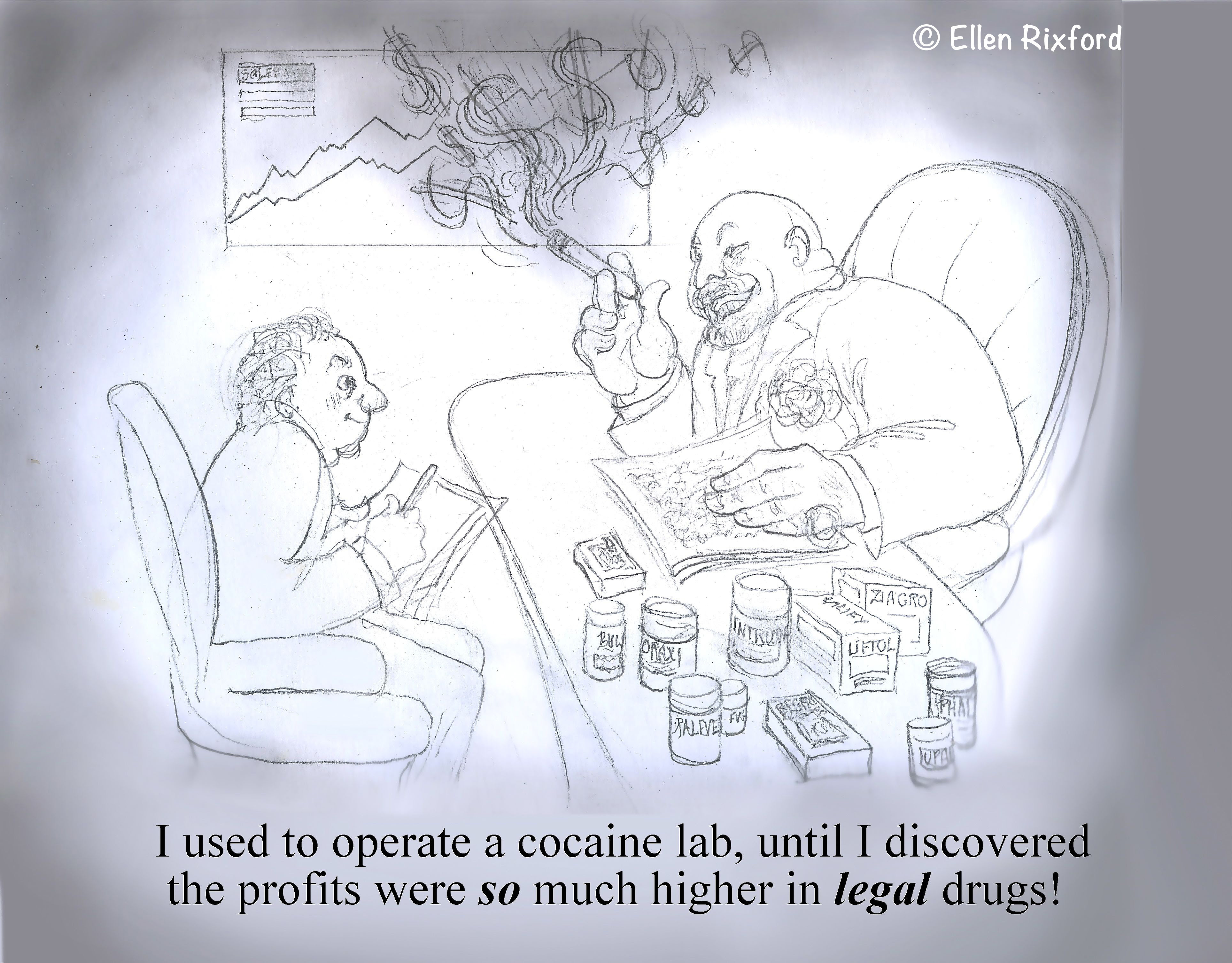Most women dread mammograms, as well they should. Not only is the experience uncomfortable, time-consuming and anxiety-inducing, the diagnostic is increasingly acknowledged to be inaccurate, ineffective and, in many cases, harmful.
So here’s a hot new idea: mammogram boutiques! Many medical clinics across the country are creating spa-like spaces designed to entice reluctant women to submit to this questionable procedure. These facilities feature warmed-up robes, soft music, beverage bars, all in cheery, pastel colors, gently lit, with potted plants, inspiring quotes on the walls. One clinic serves pretzels, graham crackers and juice. Another highlights a chandelier and scent diffuser. Evidently, the V.I.P. treatment is working, as many clinics report more women now responding to their friendly notes saying, “It’s time for your yearly mammogram.”
This trend may be good for business, but is it good for women? The nonprofit Institute of Medicine, affiliate of U.S. National Academy of Sciences, has stated that the toxic effects of mammogram radiation are a significant factor in the development of breast cancer: just one mammogram can expose you to the radiation equivalent of 1,000 chest X-rays. Mammograms also carry an unacceptably high rate of false positives — up to 6 percent — which can lead to repeat screenings that expose you to even more radiation, as well as unnecessary invasive medical procedures, e.g., biopsies, surgery, chemotherapy. Moreover, the stress of a false positive can create havoc in daily life and body function. Too often, pre-cancerous masses, such as DCIS, which rarely lead to malignancy, are treated unnecessarily. Statistics show that mammograms do not save women’s lives or improve survival rates more than an annual physical examination alone.
In our view at F.A.C.T., a far better cancer screening option would be periodic thermography testing — a noninvasive diagnostic with no negative side effects. Thermography can detect problem areas years before cancers or other degenerative conditions fully develop. This kind of early stage detection can motivate an individual to get on a good Biorepair-type program, and, hopefully, avoid the trauma of a cancer diagnosis. Check the resource listed in our Practitioner Directory.
To your health!
Foundation for Advancement in Cancer Therapy (F.A.C.T.)
P.S. FALL SPECIAL!! For 2 weeks (ending Friday, October 4th), we are offering a 30% discount for all orders placed on our Donate page. Just apply the code SPECIAL30 at check-out and remember, all orders are U.S. tax-deductible. We hope you’ll take this chance to enhance your health library and your health! Thanks so much for your feedback and support and, as always, follow us on Twitter, Facebook and our YouTube channel!

The Truth About Drug Companies —
How They Deceive Us and What to Do About It
by Marcia Angell, M.D.
A Book Review by Consuelo Reyes, F.A.C.T. President
This review was written in 2004, when the book was first published. Unfortunately, not much has changed since then, though the subject matter is more relevant than ever and well worth revisiting. Author Marcia Angell is an American physician, a professor, and the first woman to serve as editor-in-chief of the New England Journal of Medicine. Now in her 80’s, she is a Senior Lecturer in the Department of Global Health and Social Medicine at Harvard Medical School in Boston, Massachusetts.
This book was not a “quick read” — not because it isn’t a very well-written, fascinating exposé
of one of the most powerful industries in our country (if not the world). Rather, it was slow going because every page contained so many outrages (e.g., examples of deception, manipulation, sheer unethical behavior at the public’s expense, etc.), I had to put it down frequently to cool off.
READ MORE
What Is A Friend?
In these fast-paced, too often polarized and stressed out times, perhaps the one thing we can all agree upon is that true friendships are really important. But it’s not so easy. It’s takes time to cultivate genuine friends, and to keep up with them through the thick and thin of decades. Most would concur, however, that it’s worth the time and energy.
So what is a real friend? Here are 7 qualities identified by a Facebook group. No doubt there are more you might come up with. READ MORE

Saving the Planet:
It’s Not the Cow; It’s the How!
There’s a myth afoot in the Environmental/Health Movement, that, if you’re really serious about saving the planet and being healthy, you have to stop eating meat! After all, don’t animals produce methane that increases global warming and doesn’t meat contain all kinds of hormones, antibiotics and other stuff bad for human well-being?
The reality is, there is nothing intrinsically bad about homo sapiens eating animal foods. In fact, animals have provided populations with vital sustenance for thousands of years. The problem is the way we manage animal production in this so-called advanced industrial age. When managed properly, livestock have the potential to strongly support human life and positively impact — even reverse — the effects of global warming! READ MORE
Goats in Gotham
Speaking of humans and animals partnering for a healthy environment, this summer Riverside Park Conservancy, in Upper West Side Manhattan,“hired” 24 goats in charge of weed control for steep areas overgrown with invasive and dangerous plants, like poison ivy and such. Goats are natural weed whackers, consuming vegetation like an all-you-can-eat buffet — as much as 25% of their body weight in one day! READ MORE
Grass-fed Spaghetti Sauce*
1 pound grass-fed ground beef
1 medium onion, peeled and finely chopped
1 1/2 cup beef or vegetable stock
1/2 cup red wine
1 tablespoon fresh rosemary leaves, chopped or 1/2 tablespoon dried rosemary
Sea salt and pepper to taste
- Sauté ground meat in a heavy skillet until crumbly.
- Add onions, stock, wine and rosemary. Bring to a simmer uncovered for 15-30 minutes until liquid has been reduced to a thick sauce.
- Season with salt and pepper.
- Serve over a grain like buckwheat, soba noodles or zucchini noodles.
*This is based on a recipe from the wonderful Nourishing Traditions by Sally Fallon.

|
Special thanks to artist and F.A.C.T. trustee, Ellen Rixford at EllenRixford.com |
| Created by the Foundation for the Advancement of Cancer Therapy Copyright © 2017 – 2021. All rights reserved. |






